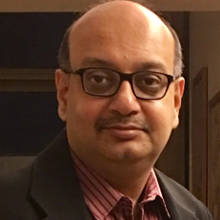[Image by rawpixel from Pixabay]
“We’d like to inculcate startup or entrepreneurial thinking inside our firm.” One hears this refrain a lot these days from big established firms across industries. That’s a shift from four years ago, when chief executives of large, established firms would struggle to understand the mindset of young startup founders. And at Nasscom events, it was equally common to see startup founders being mobbed by young techies. The same audience would promptly leave the hall if a CEO of a large, successful software company came in to present.
We’ve obviously travelled a fair bit from those days. And there are enough tell-tale signs of change. At leadership off-sites, it is now quite common to hear CEOs and chief human resource officers (CHROs) consciously seek out startup founders to address teams, instead of dyed-in-the-wool corporate CEOs. That’s not surprising, given that across sectors many large established firms are now seeking new ways to drive growth—and their biggest bugbear invariably turns out to be, and you’ve guessed it right: how to change rigid mindsets. A settler’s mindset at a time of great change is a recipe for concern. And fostering learning agility is particularly difficult, if you’re not open to new ways of working.
Listening to an entrepreneur narrate the highs and lows of his journey may be the easy part. Jointly reflecting on the key takeaways from the session too is par for the course. But the real issue is this: Do these conversations actually help hasten the change in mindsets that most CEOs crave for? It is certainly a good idea to fuel these conversations, but unless the lived experience starts to change every day, there’s very little chance that leadership behaviour will undergo any perceptible change.
So what are some of the typical blockers that prevent leaders in large established firms from becoming more agile and nimble? It might seem somewhat odd in these times, but functional silos end up becoming the biggest barriers to change. And you’d be surprised just how rare cross-functional ways of working tend to be across Indian organisations. The trouble is that many of the more complex challenges in an organisation—say discovering a new market space—can’t be addressed in any other way.
Even if you string together a cross-functional team, and find a way to isolate them from the mainstream organisation, much of the team’s behaviour would still remain rooted in organisational memory. Having been successful for many years, it is far from easy to convince yourself that it is time to don a new hat.
Yet that’s something that many startup founders, especially the smart ones, are usually adept in: They simply wipe the slate clean and start afresh. Call it learning agility or nimbleness, but how do you help build new muscle memory among leaders that makes it easier for organisations to cut a clear path ahead?
Now, think about how the best entrepreneurs learn. They typically use their network to start exploratory conversations with a diverse set of stakeholders about new opportunities. They remain intellectually curious at all times, asking questions, listening carefully and building on each conversation to cull out a set of insights that can’t be found in any textbook or YouTube video. In her seminal paper What Makes Entrepreneurs Entrepreneurial, professor Saras Sarasvathy at the Darden School of Business Administration at the University of Virginia captures this approach, which she calls effectuation, very well.
Contrast that with causal or predictive reasoning that we were taught in business school. It is all about starting with a pre-determined goal and a given set of means to reach the most optimal—fastest, cheapest and most efficient—of alternatives to that goal.
On the other hand, Professor Sarasvathy’s research based on in-depth conversations with successful entrepreneurial founders busts this myth. They rely on effectual reasoning, she says, which does not start with a specific goal. Instead, it begins with a given set of means and allows goals to emerge contingently over time from the varied imagination and diverse aspirations of the founders and the networks they interact with.
Watch her #mustwatch TEDx talk:
Effectual thinkers are more like explorers on a voyage into uncharted waters, like Columbus who discovered the new world. And causal thinkers are like great generals seeking to conquer fertile land, like Genghis Khan, who annexed two-thirds of the known world. It is another matter that the best entrepreneurs are capable of both and use both modes well. They tend to prefer effectual reasoning over causal reasoning in the early stages of a new venture, and arguably, most entrepreneurs do not transition well into the latter stages, requiring more causal reasoning, says Sarasvathy.
The same logic would perhaps apply, if you were a large firm on the look-out for new, white space growth opportunities. Abandoning the default mode of thinking—usually anchored in predictive reasoning—is always hard. Yet that’s what separates the truly entrepreneurial firms from those that aspire to be entrepreneurial, but eventually flounder because they don’t quite know how to unlearn old ways of thinking.
(This column was first published in Business Standard)

